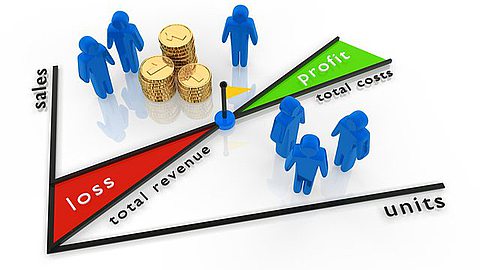5 Start-Up Strategies You Need to Know

Seattle has some great entrepreneurs: Bill Gates of Microsoft, Jeff Bezos of Amazon, and Howard Schultz of Starbucks, come to mind. While I have not interviewed any of them, I recently interviewed a Seattle entrepreneur who has started four companies and he offered five choice bits of advice to entrepreneurs.
The entrepreneur in question is ScaleOut founder and CEO Bill Bain. It makes software to help companies analyze huge amounts of data fast, is Bain’s fourth start-up. After earning a Ph.D. in electrical engineering from Rice University, Bain went to Bell Labs research, Intel, and Microsoft.
Microsoft acquired his third start-up, Valence Research, a maker of distributed Web load-balancing software for an undisclosed amount in 1998. Bain is also actively involved in entrepreneurship and Seattle’s angel investor community -- the Alliance of Angels -- which has funded ScaleOut since he founded it in September 2003.
ScaleOut sounds like it is doing well. According to Bain, “We are growing at 50 percent a year, we have 400 customers, and we have been profitable since 2008 with under 50 employees. And we are targeting the In-Memory Data Grid market segment at the intersection of big data, enterprise software, and grid computing that Gartner estimates is a $439 million market growing at 20 percent a year.”
His excellent advice is reflected in these five start-up strategy tips.
1. Start a company when you can pass these three tests.
Bain believes that entrepreneurs should only start companies when they have reached the right time in their lives, they have identified an attractive market opportunity where they can win - because they are disrupting an existing industry and tapping into several technology trends that are happening at the same time, and they have the ability and resources to gain market share.
As Bain said, “Zander Nosler is a great example of someone who passed these three tests. At the age of 28, he had developed a reputation as someone who was great at brewing coffee. In 2004, he had developed a coffee maker called Clover that made coffee that tasted so much better than’ that when he opened coffee shops in Manhattan they were drawing customers away from Starbucks. Howard Schultz went into Nosler’s shop and ended up buying his company, Coffee Equipment Company, in March 2008.”
2. Pursue a big market that has an unmet need.
Bain recommends that entrepreneurs go after opportunities that are “scalable and address a customer pain point.” By “scalable,” he means that the market is big and getting bigger or is small now but is getting big fast. And “customer pain point” means that your product solves a painful unsolved problem for a customer. “We ask every company that applies for angel funding to describe the customer pain point that it is solving,” explained Bain.
3. To get customers to try your product, do research before you build it.
If you listen to Steve Jobs, then you think customers have no idea what they want so there would be no benefit in asking them. But what worked for Jobs does not apply to most entrepreneurs. As Bain explained, “To get a customer to try your product, you should do considerable market research before you start to build it. That means talking to customers who are the most likely customers to get an in-depth understanding of what they need. Timing is also important. When I started Valence, my timing was perfect and the demand was growing at the time I was ready to ship the product. With ScaleOut, demand is growing almost faster than we can fulfill it.”
4. To build your team, put two in a box.
Bain believes that most entrepreneurs lack all the skills needed to get their venture off the ground. To overcome this problem, he uses the “two in a box” concept - ScaleOut, for example, is run by two co-heads with complementary skills. “My chief operating officer, Dave Brinker, reports to me but we make all key decisions together. He has extensive experience with accounting, finance, and sales and can build the processes that a growing venture needs. I bring an understanding of technology trends and how to recruit a team at the earliest stage of a company’s development. Angels will invest in a great CEO who can make the right decisions at the right time - managing the tradeoffs between stubborn pursuit of a vision and the need to be flexible and adapt to change,” said Bain.
While Bain believes that the two in a box concept leads to better decisions, he also thinks a start-up needs other skills - like sales, PR, human resources, and engineering management. And attracting top talent is particularly hard in Seattle because “people get paid the highest salaries from Microsoft and Amazon and have a hard time seeing why they should leave there to work for a start-up. I tell them that a career in a start-up can be just as rewarding - they may advance faster because of their start-up experience but they will do so in several different companies if they are well-accepted within our entrepreneurial community,” explained Bain.
5. Build a culture that reflects clear values.
Bain believes that a start-up’s culture is very important. ScaleOut clearly reflects the values that he thinks matter most. “We are angel funded and I want to keep our priorities straight. Everyone who works in our company knows that we have other peoples’ money and we need to use it wisely. I also stress the importance of quality in everything we do - from our product, to customer service, to communications with our employees, customers, and investors. Unlike Microsoft we cannot fall back on a great reputation. We need to earn our customer’s trust by doing everything with high quality,” said Bain.





